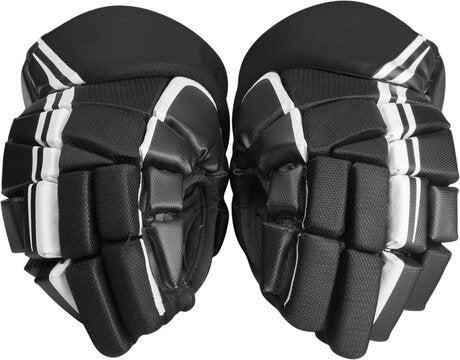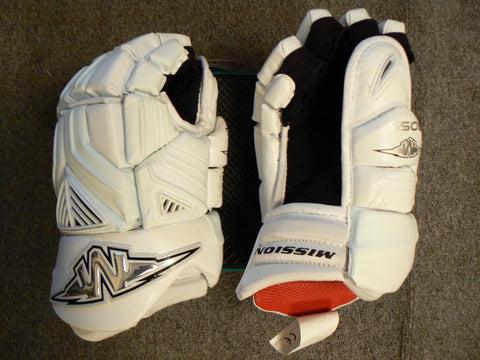Hockey is a sport cherished by many, but with it comes a less-loved aspect: the notorious smell of hockey gloves. This is a common issue that every player encounters. The distinct and often pungent odor of hockey gloves not only affects the player but can also permeate their equipment bag and surroundings. Understanding how to get the smell out of hockey gloves is crucial, not just for the sake of olfactory senses, but also for maintaining hygiene and comfort. Smelly gloves can lead to skin irritation and are simply unpleasant to wear. This guide aims to tackle this pervasive issue head-on, offering practical and effective solutions to keep your hockey gloves smelling fresh.
Understanding the Cause of the Smell in Hockey Gloves

Before delving into the solutions, it’s important to understand why hockey gloves start to smell in the first place. The primary culprit is sweat. During an intense game or practice, hands sweat profusely, and this moisture is absorbed by the gloves. Sweat itself is mostly odorless; however, it creates a perfect breeding ground for bacteria. These bacteria are responsible for the foul smell as they break down the sweat and other organic matter inside the glove.Another contributing factor to the odor problem is the frequent use of hockey gloves without adequate ventilation. Continuous use without allowing the gloves to dry properly exacerbates the issue. The damp, enclosed environment inside the gloves after each use promotes bacterial growth, leading to that all-too-familiar stench. In the following sections, we’ll explore various methods and practices on how to get the smell out of hockey gloves effectively, ensuring they remain fresh and hygienic for every game and practice.
Preventative Measures
Regular Airing Out of Gloves After Use
One of the most effective ways to get the smell out of hockey gloves is to prevent the odor from building up in the first place. A simple yet crucial step is regularly airing out your gloves. After each use, instead of tossing your gloves into your bag,take a moment to air them out. This can be as simple as hanging them in a well-ventilated area or placing them in front of a fan. Allowing air to circulate through the gloves helps evaporate the sweat and moisture, making the environment less conducive for bacteria to thrive.
Importance of Hand Hygiene Before Wearing Gloves
Another preventive measure is maintaining good hand hygiene. Washing your hands before putting on your hockey gloves can significantly reduce the transfer of sweat and oils. Less sweat means less odor, and it also helps in maintaining the inner material of the glove.
Tips for Reducing Moisture During Play
To further combat the issue of how to get the smell out of hockey gloves, consider using strategies to reduce moisture during play. Wearing thin, moisture-wicking inner gloves can be a game-changer. These gloves absorb sweat and can easily be washed, keeping your hockey gloves drier and fresher for longer.
Daily Maintenance Tips

Wiping Gloves Down After Each Use
Read more : How To Make Golf Gloves Sticky
After each game or practice, take a few minutes to wipe down your gloves with a dry cloth. This helps remove some of the moisture and can prevent the buildup of bacteria. For a deeper clean, you can use a mild disinfectant wipe, but make sure it’s safe for the glove material.
Using a Glove Deodorizer
There are products specifically designed to tackle how to get the smell out of hockey gloves, such as Matguard disinfectant sprays and disinfectant wipes. These products are formulated to kill bacteria and eliminate odors without damaging the glove material. Regular use after playing can significantly reduce the odor.
Deep Cleaning Methods
Step-by-Step Guide for Washing Hockey Gloves
- Preparation: Remove any debris and loose dirt from the gloves.
- Hand Washing: Fill a basin with lukewarm water and add a gentle, non-bleach detergent.
- Submerge the gloves and gently scrub them using your hands or a soft brush.
- Rinse thoroughly with clean water.
Machine Washing: If the manufacturer allows, you can machine wash the gloves on a gentle cycle with a mild detergent. Ensure to fasten any straps to avoid damage.
Hand Washing vs. Machine Washing: Pros and Cons
- Hand Washing: More gentle on the gloves, allowing for detailed cleaning, but can be time-consuming.
- Machine Washing: Convenient and effective for a thorough clean, but can be harsher on the gloves and may lead to deterioration if done frequently.
Appropriate Detergents and Cleaning Agents
Use a mild, fragrance-free detergent to avoid any chemical damage to the gloves. Avoid bleach or harsh chemicals that can degrade the glove material.
Drying Techniques to Maintain Glove Shape and Quality
Air dry the gloves by hanging them or placing them in an open area with good air circulation. Avoid direct sunlight or heat sources, as these can warp the gloves.
Stuffing the gloves with newspaper can help absorb moisture and maintain their shape during drying.
By following these preventative measures, daily maintenance tips, and deep cleaning methods, you can effectively tackle the issue of how to get the smell out of hockey gloves, ensuring they stay fresh and hygienic for your next game.
Long-Term Care and Replacement
When and Why to Replace Hockey Gloves
Read more : How Do Hestra Gloves Stack Up
Understanding how to get the smell out of hockey gloves also involves recognizing when it’s time for a replacement. Gloves should typically be replaced when:
- Wear and Tear: The padding is compressed, or the outer material is ripped, impacting protection.
- Persistent Odor: Despite all efforts to eliminate the smell, if the odor persists, it might be time for a new pair.
- Comfort and Fit: If the gloves no longer fit comfortably or securely, they should be replaced for both performance and safety.
Proper Storage Tips to Prolong Glove Life
To extend the life of your hockey gloves and keep the smell at bay, proper storage is key:
- Dry Environment: Store gloves in a dry, well-ventilated area to prevent moisture buildup.
- Use a Glove Bag: A breathable glove bag can protect your gloves from dust while allowing air circulation.
- Avoid Heat and Sunlight: Excessive heat and direct sunlight can degrade the materials of the gloves. Check out our complete guide on how to properly store sports equipment.
In conclusion, knowing how to get the smell out of hockey gloves is essential for any hockey player. We’ve covered a range of methods, from daily maintenance to deep cleaning techniques, aimed at tackling this common problem. Regular airing out, proper hygiene, and the use of deodorizers can go a long way in keeping your gloves fresh. Deep cleaning methods should be employed periodically to maintain glove hygiene. And finally, understanding when to replace your gloves is crucial for both hygiene and performance.
Stay diligent in your glove care routine for a more enjoyable and hygienic hockey experience. Remember, a little effort goes a long way in keeping your hockey gloves in top condition.
FAQs
Q: How often should I clean my hockey gloves?
A: You should wipe down and air out your gloves after each use. A deeper cleaning can be done every few weeks or as needed, depending on frequency of use.
Q: Can I use a hairdryer to speed up the drying process?
A: It’s not recommended to use a hairdryer as the intense heat can damage the gloves. Air drying is the safest method.
Q: Are there any home remedies for removing odor from hockey gloves?
A: Yes, you can use a mixture of vinegar and water to deodorize your gloves. However, ensure it’s safe for the glove material.
Q: Can I put my hockey gloves in the freezer to kill bacteria?
A: While freezing can kill some bacteria, it may not completely eliminate the odor and could damage the gloves’ material. It’s better to use cleaning methods designed for hockey gloves.
Source: https://t-tees.com
Category: HOW
